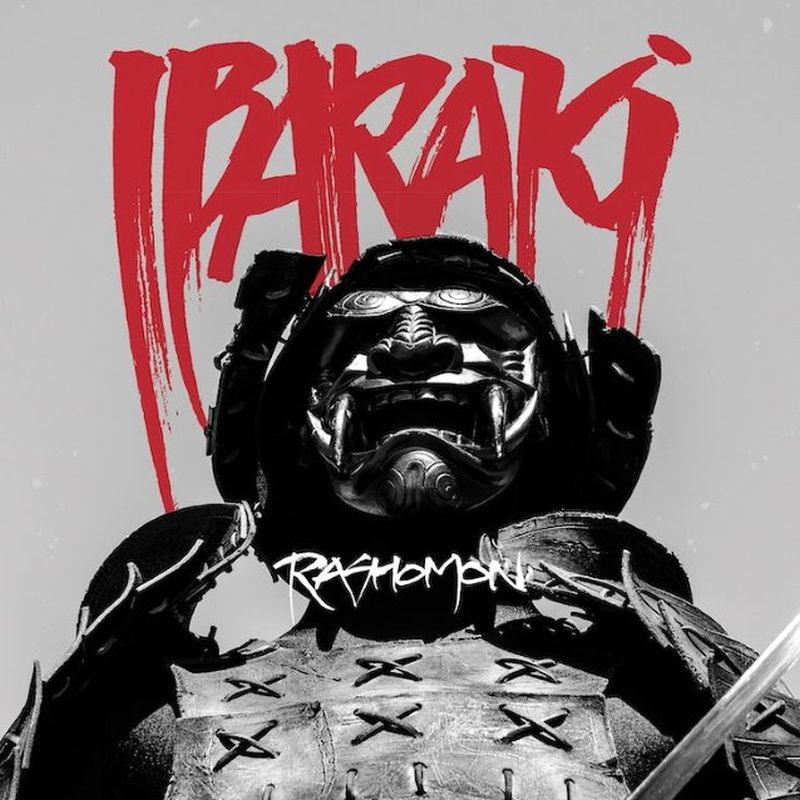BEHEMOTH's NERGAL guests on song from TRIVIUM frontman's IBARAKI project

21-02-2022
TRIVIUM singer and guitarist Matt Heafy has shared more details about his long-awaited and much-anticipated IBARAKI project. The project’s debut album, “Rashomon”, will be released on May 6 via Nuclear Blast. The band has shared the video for “Akumu”, featuring a guest appearance by BEHEMOTH‘s Adam “Nergal” Darski.
Watch “Akumu” below.
“‘Akumu’ translates to ‘nightmare’ — and with this piece, I encourage the listener to work to find their interpretations of what they feel from the lyrics, music, and the haunting visuals of the music video,” says Heafy. “I have always been fascinated by Sagazan‘s ‘Transfiguration’ and for years I have wanted to pay homage to his works with a performance art piece. To finally be able to immerse myself in his style was an intense experience.“
He finishes: “Having Nergal guest in this Ihsahn-co-written piece allowed me to combine many of my long-time influences, and when I presented with Nergal of the challenge of translating my lyrics into Polish, it brought the song to another level.“
Last month, IBARAKI offered fans a taste and a tease of the music by sharing the video for “Tamashii No Houkai”, featuring special guest Ihsahn of EMPEROR fame, who is a core contributor and partner in this project.
Watch “Tamashii No Houkai” featuring Ihsahn below.
IBARAKI — the name for a terrifying Japanese demon taken from feudal legend — is the end-result of Heafy‘s continued journey to find his voice. It’s personal, it’s deep, and its inspirations include everything from an adoration for the extremes of black metal and beyond. Heafy himself is of Japanese origin.
It was Heafy‘s exposure to Ihsahn‘s solo work that would inspire the gradual craftsmanship that would eventually become IBARAKI. It was also the beginning of a friendship and creative collaboration that would eventually compel Ihsahn to take a leap of his own into a newfound role as producer on the project. While much of the material for IBARAKI was assembled over months and years — as much a songwriting process as an exchange of ideas between friends — it wasn’t until the pandemic that the space was created and the idea could really flourish.
Back in 2015, Heafy told Revolver magazine about IBARAKI: “IBARAKI was initially intended to be a black metal band that I was never going to tell anybody I was in. I was going to make the music, and it was going to be pretty true to the ’90s second wave-style-black metal — sort of like DARKTHRONE, early DIMMU BORGIR, early EMPEROR. But while IBARAKI has its roots in black metal, it’s become something so much more. It’s not just black metal — it’s anything I’ve ever wanted to try.”
Heafy previously said about his decision to launch IBARAKI: “My love for black metal eventually spawned the idea of creating a side musical project based upon the same early values of Norwegian black metal: a project shrouded by anonymity — a musical venture that no one would ever know was ‘me.’ I think that initial idea was due to the fact that the black metal genre usually warrants some of the most elite-minded fans; the kind that… well, basically don’t like anything anyone else likes — ones who even quickly turn their backs on their favorites of the black metal genre once any kind of popularity occurs. It’s that close-mindedness of a small-faction of the fans that I initially wanted to try to grasp, but one day I befriended a new mentor who would help change that outlook through their musical and artistic influence.”
He added: “Through my conversations with Ihsahn and the influence of his new record, the idea of the black metal ‘project’ I was intending to do completely took a new shape and form. No longer was I concerned what anyone would think about it — all I wanted to do was make exactly what I felt like; the principles of black metal I learned from Ihsahn all made complete sense with this attitude. Through the next few months, we would occasionally pass around more things for each other to check out, including passing back and forth the demos of IBARAKI. The decision was clear — when time outside of TRIVIUM existed, Ihsahn must produce the IBARAKI record.”

Social media



